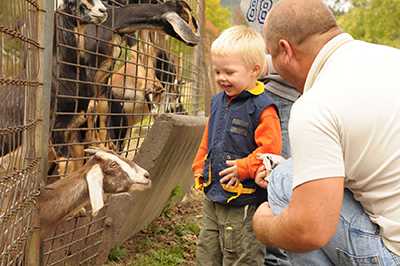Zoonotic Diseases
Zoonotic Diseases (also known as zoonoses) are caused by infections that are shared between animals and people.



Every year, tens of thousands of Americans will get sick from diseases spread between animals and people. These are known as zoonotic diseases. Zoonotic means infectious diseases that are spread between animals and people. Because these diseases can cause sickness or death in people, CDC is always tracking and reporting them.
Animals provide many benefits to people. Many people interact with animals in their daily lives, both at home and away from home. Pets offer companionship and entertainment, with millions of households having one or more pets. We might come into close contact with animals at a county fair or petting zoo, or encounter wildlife while enjoying outdoor activities. Also, animals are an important food source and provide meat, dairy, and eggs.
However, some animals can carry harmful germs that can be shared with people and cause illness – these are known as zoonotic diseases or zoonoses. Zoonotic diseases are caused by harmful germs like viruses, bacterial, parasites, and fungi. These germs can cause many different types of illnesses in people and animals ranging from mild to serious illness and even death. Some animals can appear healthy even when they are carrying germs that can make people sick.
Zoonotic diseases are very common, both in the United States and around the world. Scientists estimate that more than 6 out of every 10 known infectious diseases in people are spread from animals, and 3 out of every 4 new or emerging infectious diseases in people are spread from animals. Every year, tens of thousands of Americans will get sick from harmful germs spread between animals and people. Because of this, CDC works 24/7 to protect people from zoonotic diseases.
Animals and health
Check out these CDC resources to learn more.
- Zoonotic Infections: Information about zoonotic outbreaks, prevention messages, and helpful resources.
- Healthy Pets, Healthy People: Information on health benefits of pets, disease risks, and prevention resources.
- Gastrointestinal (Enteric) Diseases from Animals: Information about gastrointestinal (enteric) zoonotic outbreaks, caused by germs like Salmonella, E. coli, and Campylobacter bacteria.
- Swine Influenza/Variant Influenza Virus: Information on swine influenza, which is a respiratory disease of pigs caused by type A influenza viruses that regularly cause outbreaks of influenza in pigs.
- Avian Influenza: Information on the disease caused by infection with avian (bird) influenza (flu) Type A viruses. These viruses occur naturally among wild aquatic birds worldwide and can infect domestic poultry and other bird and animal species.
How do germs spread between animals and people?
Because of the close connection between people and animals, it’s important to be aware of the common ways people can get infected with germs that can cause zoonotic diseases. These can include:
- Direct contact: Coming into contact with the saliva, blood, urine, mucous, feces, or other body fluids of an infected animal. Examples include petting or touching animals, and bites or scratches.
- Indirect contact: Coming into contact with areas where animals live and roam, or objects or surfaces that have been contaminated with germs. Examples include aquarium tank water, pet habitats, chicken coops, plants, and soil, as well as pet food and water dishes.
- Vector-borne: Being bitten by a tick, or an insect like a mosquito or a flea.
- Foodborne: Each year, 1 in 6 Americans get sick from eating contaminated food. Eating or drinking something unsafe (such as unpasteurized milk, undercooked meat or eggs, or raw fruits and vegetables that are contaminated with feces from an infected animal).
Who is at a higher risk of serious illness from zoonotic diseases?
Anyone can become sick from a zoonotic disease, including healthy people. However, some people may be more at risk than others and should take steps to protect themselves or family members. These people are more likely than others to get really sick, and even die, from infection with certain diseases. These groups of people include:
- Children younger than 5
- Adults older than 65
- People with weakened immune systems

What can you do to protect yourself and your family from zoonotic diseases?
People can come into contact with animals in many places. This includes at home and away from home, in places like petting zoos, fairs, schools, stores, and parks. Insects, like mosquitoes and fleas, and ticks bite people and animals day and night. Thankfully, there are things you can do to protect yourself and your family from zoonotic diseases.
- Keep hands clean. Washing your hands right after being around animals, even if you didn’t touch any animals, is one of the most important steps you can take to avoid getting sick and spreading germs to others.
- Always wash your hands after being around animals, even if you didn’t touch the animals.
- Many germs are spread by not washing hands with soap and clean, running water.
- If clean, running water is not accessible, use soap and available water.
- If soap and water are unavailable, use an alcohol-based hand sanitizer that contains at least 60% alcohol to clean hands. Because hand sanitizers do not eliminate all types of germs, it is important to wash your hands as soon as soap and water are available.
- Know the simple things you can do to stay safe around your pets.
- Prevent bites from mosquitoes, ticks, and fleas.
- Learn more about ways to handle food safely—whether it’s for yourself or your family, your pet, or other animals.
- Be aware of zoonotic diseases both at home, away from home (such as at petting zoos or other animal exhibits), in child care settings or schools and when you travel.
- Avoid bites and scratches from animals.
- Page last reviewed: July 14, 2017
- Page last updated: July 14, 2017
- Content source:


 ShareCompartir
ShareCompartir